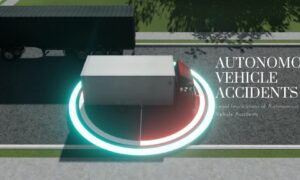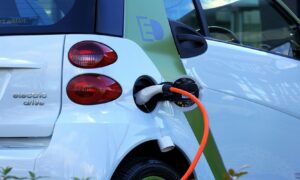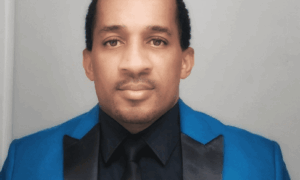Self-driving cars are changing how we travel. They offer safer roads, less traffic, and easier transportation. But they also come with challenges – especially when figuring out who is at fault in an accident. In regular car crashes – human error is usually to blame. With autonomous vehicles, it is not so clear. Liability can be complicated.
If you are ever in a self-driving car accident – having a self-driving car accident lawyer by your side can help you understand your rights. For those in San Diego – a San Diego car accident lawyer can provide expert guidance tailored to your situation.
The unique challenges of autonomous vehicle accidents
Self-driving cars operate using cutting-edge technology like sensors, cameras, and artificial intelligence (AI). These systems are designed to predict and respond to the movements of other vehicles and pedestrians. But predictions can go wrong. A study by the University of Georgia highlighted that discrepancies between AI predictions and real-world events can lead to accidents.
For instance – the planned trajectory of a self-driving car might unexpectedly collide with the actual movements of another vehicle. These errors highlight a significant challenge: while AI is advanced, it isn’t perfect. Factors like – road conditions, unpredictable drivers, and sudden hazards can throw even the most advanced systems off balance.
When such accidents occur – pinpointing responsibility isn’t as straightforward as in traditional crashes. Is it the car manufacturer? The software developer? Or even the person sitting in the driver’s seat, monitoring the vehicle? This is where a self-driving car accident lawyer comes in to untangle the legal complexities.
Who can be held liable?
The manufacturer
Car manufacturers are responsible for guaranteeing their vehicles are safe. If a crash occurs due to a mechanical failure or faulty hardware, liability may fall on them. For instance – defective brakes, malfunctioning sensors – or improperly calibrated cameras can lead to accidents.
The software developer
AI software drives the decision-making process in self-driving cars. If the software makes an incorrect prediction or fails to adapt to a unique scenario – the developer might be held accountable. Recent research into improving AI models shows the importance of designing systems that can anticipate errors, but no model is foolproof.
The vehicle operator
Although self-driving cars are autonomous, many require a human to oversee operations. If the individual fails to intervene when the system misjudges a situation – they might share responsibility. For example – if a crash could have been avoided had the operator applied the brakes, they may be partially at fault.
Other road users
In some cases, the actions of another driver or pedestrian might cause an accident. Just because a self-driving car is involved doesn’t automatically mean it is to blame. A self-driving car accident lawyer can investigate the circumstances to determine if external factors play a role.
The role of artificial intelligence in improving safety
A promising study by the University of Georgia has shown that AI models can improve the safety of self-driving cars. By combining traffic prediction and motion planning, these models aim to reduce the likelihood of collisions. However, even the most advanced systems can’t eliminate every risk.
For example – traditional AI systems often focus separately on predicting traffic movements and planning the vehicle’s path. This separation increases the chance of errors. The new model consolidates these steps – making self-driving cars safer. However as lead researcher Qianwen Li points out – predicting the exact movements of other drivers is still a challenge.
To balance safety and mobility – AI must find the middle ground between driving cautiously and maintaining smooth traffic flow. Overly cautious vehicles could cause congestion – while overly aggressive ones could increase accident risks. It is a delicate balance that developers continue to refine.
What does this mean for victims?
If you have been in an accident involving a self-driving car – the legal system might feel overwhelming. Unlike traditional crashes – where fault usually lies with one of the drivers – autonomous vehicle accidents involve multiple stakeholders.
Evidence gathering
Proving liability often requires access to detailed data from the car, including sensor logs and software records. A self-driving car accident lawyer can help secure this critical information.
Understanding the technology
To build a strong case – it is essential to understand how the vehicle’s AI system operates. Lawyers experienced in this area know what to look for and how to interpret the data.
Handling complex laws
Laws governing self-driving cars vary by state and are still growing. Having a legal expert on your side ensures you are fully informed and prepared.
Steps to take after a self-driving car accident
If you are involved in a crash with an autonomous vehicle – follow these steps to protect your rights.
Prioritize safety – Check for injuries and call emergency services immediately.
Document the scene – Take photos of the accident, including – all vehicles involved, road conditions, and any visible damage.
Collect information – Exchange details with the other party, including the vehicle’s manufacturer and software provider, if possible.
Seek legal advice – Contact a self-driving car accident lawyer as soon as possible. They can guide you through the process and make sure your interests are protected.
Preserve evidence – Avoid tampering with the vehicle or its data. Let experts handle the retrieval of crucial information.
The future of liability in self-driving car crashes
As autonomous vehicles become more common – the legal framework surrounding liability will continue to evolve. Governments, manufacturers, and software developers must work together to create clear guidelines. At the same time – advancements in AI, like those from the University of Georgia – will likely improve safety and reduce accidents.
However, for now, the legal system is still catching up. Victims must rely on experts to handle this uncharted territory. If you are dealing with such a case – a self-driving car accident lawyer can help you secure the compensation you deserve.
Conclusion
Understanding liability in self-driving car accidents is no easy task. These cases are more complicated than traditional crashes – often involving manufacturers, software developers, and even human operators. The good news is that technology is improving – and so is our ability to address these issues.
If you are ever involved in a self-driving car crash – don’t try to handle it alone. Seek advice from a self-driving car accident lawyer who understands the complexities of these cases.



































